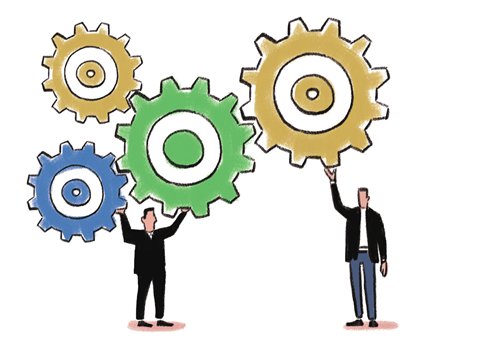When in December of 1978, the Chinese government decided to reform and open up their economy under Deng Xiaoping's guidelines, no foreign observer could foresee the deep changes that the economy and society would experience in the following years. Not only the socialist market economy learned how to hunt mice, but also became the world's second largest by nominal GDP (2017). Besides, China is the world's largest manufacturing economy and exporter of goods, the world's fastest-growing consumer market, and second-largest importer of goods.

Illustration: Liu Rui/Global Times
In the past few years, China has blossomed into the largest trading nation and played an outstanding role in international trade by increasingly engaging with trade organizations and treaties. Nowadays, the government promotes multilateral cooperation and pursues free trade through it. During the 22nd APEC Economic Leaders' Meeting, the G20 Hangzhou Summit, and the BRICS Xiamen Summit, all hosted by China, the country increased coordination with all parties concerned and secured its stance on opposing protectionism in the summit declarations. But, every story with a happy ending has a not so good beginning. This one goes back to 17 years, to December 11, 2001. The People's Republic of China joined the World Trade Organization (WTO).
Usually, the acceptance of a newcomer's petition for joining the organization is not exempt from tough demands by members. Nonetheless, China consistently reformed and developed the socialist market economy and its legal system to satisfy the requirements. The reform and opening-up have been so skillfully undertaken that even American and European defenders of the free market were forced to again take the path of protectionism in some sectors, given the exponential rise in the sale of Chinese products in their markets.
Certainly, the entry into the WTO promoted the rise of China. However, the country must have accepted some abusive clauses that affected its economy and led to malaise. The US and EU's clauses don't always go along with Chinese national interests. Adherence to WTO rules come through talks dominated by Western interests.
Nobody likes to get older but these 17 years have not passed in vain for the Chinese government. As a fully-fledged member of the WTO, China accomplished a set of remarkable landmarks in different areas such as the review and revision of relevant laws and regulations, involving 2,300 laws, regulations and departmental rules at central government level, and 190,000 policies and regulations at sub-central government levels, according to the white paper titled "China and the World Trade Organization" released last Thursday.
Second, import tariffs have been substantively reduced. In the agriculture sector, one of the most sensitive for the players, China's maximum bound tariff rate for products is 65 percent, while the corresponding rates of the US, the EU and Japan are 440 percent, 408 percent, and 1,706 percent respectively. Third, the IPR legal system has been developed with three IPR courts in Beijing, Shanghai, and Guangzhou, and special judicial organs at 15 intermediate courts in Nanjing, Suzhou, Wuhan, Xi'an and other cities.
In spite of China creating a more business-friendly environment for foreign investment, the country didn't forget its origins. As the largest developing country, China understands the difficulties of developing members to benefit from global value chains. Hence, the government worked hard to make trade an enabler of the 2030 Agenda for Sustainable Development. China has reinforced its aid to other developing members, especially least-developed countries.
China has released white papers over commercial disputes with the US. The Trump administration reacted to that with skepticism. They doubt that China is willing to make more progress soon on trade issues. Nonetheless, according to WTO statistics, China's imports accounted for 10.2 percent of the world's total merchandise imports in 2017, and its exports 12.8 percent. China's exports have provided quality and inexpensive products to businesses and people around the world. The government had the moral obligation of pursuing opening-up. In a world with 194 countries, almost two-thirds depend on Chinese goods.
Yet, the white paper is a proof of what China has been doing for the last 17 years. It shows a country that is not a newcomer but an experienced player. China and the EU now have an opportunity of sharing the space. They can face each other as equals and negotiate the new rules of the multilateral system. While the US remains withdrawn, a new Asian-European front will be born.
During former president Hu Jintao's term in office, China got the opportunity to join the WTO while under President Xi Jinping's directives, the country has the chance to forge a greater role in the organization.
The author is a foreign policy analyst based in Europe.


